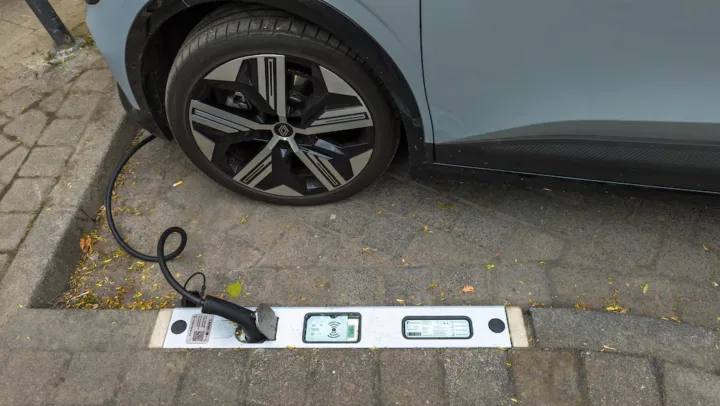Curbside charging stations enter mass production
After just over a year, the city of Cologne, the electric vehicle charging infrastructure operator TankE GmbH and Rheinmetall AG have completed field tests of four curb-integrated charging stations in the German city. The pilot project was launched in April 2024 at two locations in Cologne-Lindenthal with the aim of testing the practical feasibility, urban planning advantages and public acceptance of the charging solution magazin de piese auto online.

According to Rheinmetall, a study accompanying the experiment found: “With more than 2,800 successful charging operations – an average of two per day per charging point (…) Rheinmetall’s kerbside charging stations have not only proven to be powerful and reliable in all weather conditions, but are also regularly sought after by users.” Once the pilot project is completed, the four charging stations will be put into regular operation.
“With our product, the charging electronics are integrated into the shape of a standard curb to enable electric vehicles to be charged directly at the side of the street – without obstructing pegs, without taking up space on the sidewalk, and without compromising on safety or aesthetics,” explains Christoph Müller, CEO of Rheinmetall’s Power Systems division. “With the curb charging station we have developed, we have a ready-to-manufacture product that redefines urban charging infrastructure – because it saves space, is robust, does not create obstacles – and can be integrated into existing urban structures.”
During the test period, a total of over 50 MWh of energy was charged – an average of around 19 kWh per process, which corresponds to a range of around 120 kilometres. “The compact modular design allows for quick and easy servicing by replacing the charging module within the kerb. This allowed the stations to be ready for operation 99% of the time at low operating costs,” the development team emphasizes.
In a survey conducted in parallel with the study, users gave positive feedback - mostly thanks to the ease of use and the ability to charge not far from home/office.
Compared to conventional charging stations, curbside charging stations have a number of advantages – the ability to integrate into the existing urban landscape, protection from vandalism, saving space, preserving visibility and reducing the risk of tripping over cables. The project partners also praise the ergonomics, ease of use and accessibility of the innovation. Other advantages include easier parking, comfortable use even from the street, the elimination of protruding pegs, etc.
Only in terms of visibility is the solution slightly worse: in the future, however, this should be improved by special marking and integration into navigation apps. According to Rheinmetall, charging infrastructure operators can also count on lower installation and maintenance costs compared to conventional charging stations. There was also the option of pre-installing so-called "hollow kerbs", which can easily be equipped with charging modules if necessary. After the pilot project was completed, the charging kerbs are now available as a series product.
- 2025-07-09 - Dacia 1325 Liberta: the road to liberation
- 2025-07-08 - The 6-wheeled Polonez from 45 years ago
- 2025-07-07 - 7 models for the family from Opel: the family-oriented models from Rüsselsheim
- 2025-07-06 - A new milestone for Mirafiori with the FIAT 500 Hybrid - 5,000 cars by the end of 2025
- 2025-07-05 - The reinvention of the four rings 60 years ago: the emergence of the first Audi after World War II
- 2025-07-04 - 70,000 BMW electric cars recalled due to software bug
- 2025-07-03 - Hyundai Ioniq 6 N makes dynamic debut at Goodwood Festival of Speed
- 2025-07-02 - 510 hp and under 50,000 km: used AMG with V8 power
- 2025-07-01 - VW bans use of front right seat
- 2025-06-30 - Stellantis brings back the Hemi-V8-engine!












